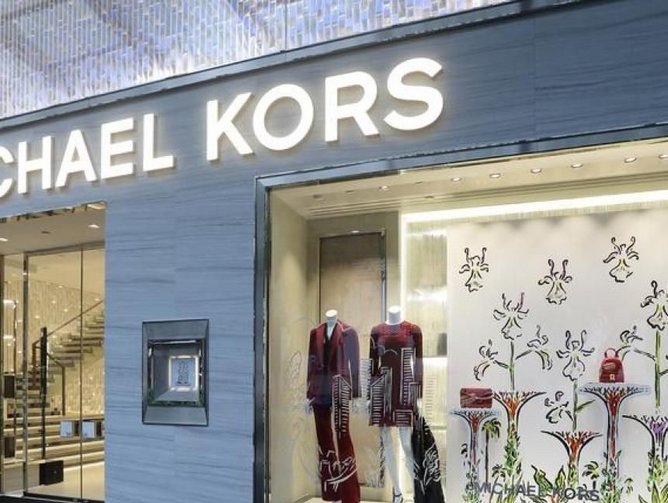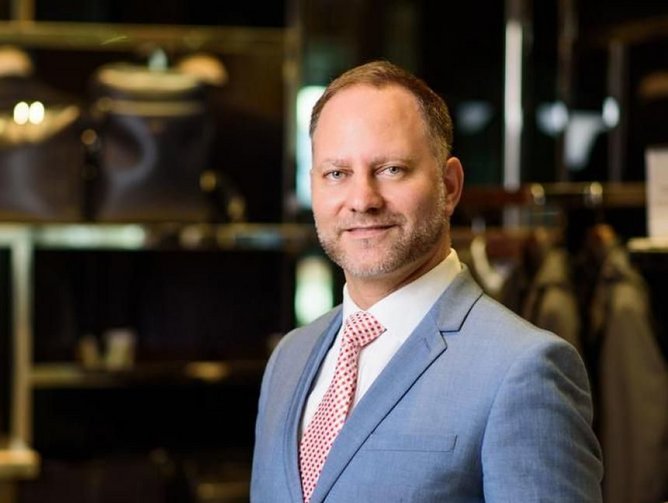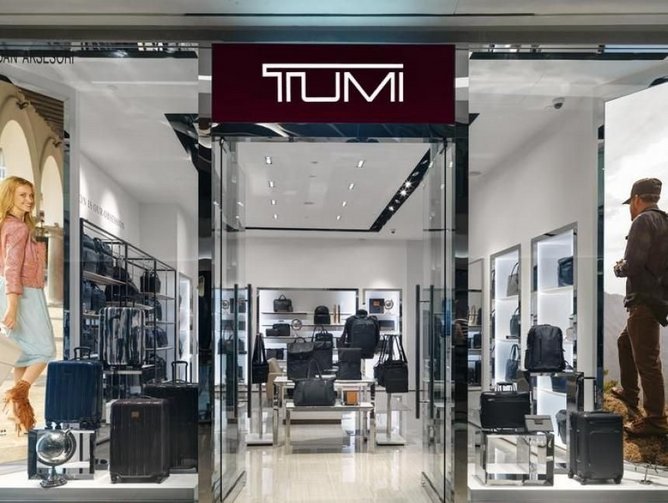The Valiram Group has come a long way from its humble beginnings and has grown remarkably, representing over 200 brands in nine countries, effectively becoming the largest distributor in Southeast Asia. With half a billion-dollar turnover and around 3,500 employees representing over 25 nationalities, the company is highly diverse and has huge potential for growth.
Valiram has experienced a cumulative annual growth rate of 30 percent over the last 10 years, bolstered by the group’s human capital, passion and drive, and facilitated by its supply chain and financial processes developed by Chief Financial Officer Szilard Brenner, which ensures the company remains competitive while utilising sophisticated technologies in exploring potential markets. The company represents over 200 brands and operates over 340 stores, with products ranging from fashion and accessories, timepieces and jewellery, perfume and cosmetics, to confectionary and dining concepts.
Working in a multitude of companies has allowed chartered accountant Brenner to gain worldwide experience and expertise within major brands, such as Tesco, Central Group, Eurogate Logistics and multinational professional service firm Deloitte, strengthening his knowledge of financial reporting and budgeting, alongside the control of supply chain operations and essential corporate governance frameworks. Originally from Hungary, Brenner is a member of the Association of Chartered Certified Accountants (ACCA) and the Chartered Institute of Management Accountants (CIMA). He has worked in the UK, Hungary, Thailand, South Korea, Vietnam and Malaysia. His involvement with Tesco’s biggest acquisition in South Korea back in 2009 fully cemented his passion for finance, business partnering and managing teams, in addition to traditional accounting tasks.
Duality
Brenner’s dual responsibilities has allowed him to make the role his own while bringing in best practices, in addition to implementing risk management and control access systems across all financial and supply chain operations. Brenner explains: “It's a good story to hear, that a CFO is in charge of supply chain operations. There is a huge advantage in being involved in operational decisions, adding value to the organisation.”
However, Brenner consistently reviews all purchases and challenges all company procedures to ensure they are not only efficient, but simple for staff and deliver on costs and quality. “I am in charge of supply chain but in terms of the finance perspective, it's all about making sure I implement feasible internal infrastructures and processes. I call them the three As: attitude, awareness and action. This should bring the company to the next level, challenge everything we do and ensure that the business is successful in terms of growth and profitability, with streamlined processes in place.”
Brenner’s leadership and involvement in Valiram’s supply chain and effective hands-on approach has seen the company’s warehouse costs reduced by five percent, relationships between internal teams (merchandising, regulatory, logistics and local country management teams) and external partners strengthened. A number of financial controls have also been implemented. For example, the company now makes use of new reports when looking at shipping costs, enabled by the implementation of a new ERP system which has simplified financial processes with regards to month-end closing. Brenner comments: “I go into the details and look at the invoices and analyse total cost of freight and logistics. I visit our international markets and empower staff to control their KPIs. I take people with me on this journey to ensure their personal success and Valiram’s.”
It is clear that Brenner feels strongly about the importance for individuals to leave their comfort zone. With regards to his own personal challenges, Brenner explains “Because the role of CFO is ever changing, the challenge is to strike a balance between the traditional role of a CFO and being a business partner”.
Distribution
With plans to develop a distribution centre close to Valiram Group’s head office in either Malaysia or Singapore, the company aims to manage distribution more centrally and strategically with regards to stock control. This will also enable it to reduce the amount of stock handled and increase speed to market. Managing stock control and directly attributable costs can be a complex process, and Brenner explains the implications if these are not handled appropriately: “For instance, we know the receiving capacity of a DC is two containers a day. If my supply chain’s inbound volumes are not managed appropriately and say we receive five containers a day, the stock handling costs will unnecessarily increase due to overtime, causing potential late deliveries to our stores.” Different Standard Operating Procedures (SOPs) are implemented for every single brand in order to receive, pick and pack, then deliver each shipment to be ready for sale to our customers.
Valiram Group must take into account cost per item, or CPU, fulfilment rates, utilisation trucks and storage space in addition to warehouse dollar cost and details of value-added services, where there are associated handling costs of each item touched. Brenner comments: “We do some very smart analysis which helps the business and our merchandisers, as well as the top management to see how much we spend per unit on each brand, whether it’s beauty, healthcare, luxury fashion or accessories. I think this transparency and visibility drive efficiencies for the company and the bottom line.”
The company has various third-party warehouses with plans to link its ERP with the warehouses’ own management systems. Technology will be key for Valiram’s operations to have real time visibility when a warehouse selects, allocates and labels products. However, Brenner adds: “Innovation is key, thus with such enablers, our merchandisers can see what we do with our stock and we can be more effective, knowing what has been received, tagged, and what products are ready to be delivered.” Combining volume and cost data has proved beneficial not only for Valiram but also its vendors, resulting in the ability to serve consumers better.
Partner power
In garnering strong partnerships with international freight suppliers and warehouse teams in the countries the company operates in, Brenner regularly meets with service providers to share the company’s business plans for growth. In some countries such growth is predicted to be nearly as much as 50 percent. He explains: “They need to know our plans in order to appreciate our company, understand our brand, ensure their plans align with ours and how we can work better together. The culture here is to be very close and open.”
The company has a number of major suppliers, one of which is freight company JAS Worldwide, which has ensured the delivery of core operational services, providing key flexibility and high quality results. Brenner explains: “We've been recognised because they are delivering on time in countries such as Australia, Singapore, Indonesia and Thailand. Merchandise arrives and we are able to open our new stores on time, making sure we satisfy our brand principals and our customers. We couldn't have done this without JAS Worldwide, so I think it's a successful relationship.”
Managing exceptions is also important, such as reverse logistics, where stores occasionally send products back to the warehouses due to season change or potential oversupply. This has an associated cost not only to transit and receive items back to the warehouse, but also to send the products off to another store. “Reverse logistics need to be monitored item by item, cubic metre by cubic metre, store by store and kept to a minimum,” comments Brenner.
However, with such company processes, Valiram Group’s KPIs incorporate effective product delivery and handling, labelling, last-mile transit, covering both cost and time taken. Brenner explains: “We look from the order pick-up, arrival of stock and the expected time frame, which can vary between three days and a month, depending on the location of our brand principals’ factories.”
He explains further: “With Michael Kors, the supply chain cost is not too high because it's being shipped from Hong Kong, whereas Victoria's Secret is being shipping from America so the shipping costs are going to be higher. When our logistics executives verify shipment charges, I want to know freight cost per kilometre, the freight cost versus cost of goods as a percentage.”
Investing in people
To support the continual running of supply chain operations and likely growth, the company has invested in the recruitment and placement of warehouse executives in every single location the company operates in. Brenner reflects: “It’s a good investment – we're investing in people as well as our systems.”
Investing in staff and not solely company operations is something close to Brenner’s heart, which can be linked to his appreciation of Tesco’s development programme which helped drive his career forward to where he is today. Brenner was previously responsible for developing a graduate programme in Malaysia for Tesco employees in partnership with CIMA to develop and train the next generation of leadership. The programme was highly successful for Tesco and the Institute in 2011 and, subsequently, Brenner became a non-executive member of CIMA’s Southeast Asia Regional Board. Brenner comments: “Finding talent and retaining talent is not an HR issue. It’s a business issue; it’s everybody's issue.”
Valiram Group’s strength is in its relationship with landlords and delivery of service operations but as it continues to expand, factors such as finding premium retail space prove to be a constraint for future growth. Regularly approached by new brands, the company evaluates each one, remaining selective on the basis of resource and investment which need to remain in line with the Group’s strategy.
Brenner adds that company growth is not possible without the right staff and attitudes. He concludes: “Our commitment to people and their development is crucial. We have invested in performance management systems and will soon implement a new and advanced human resource information system to support this.”
Nonetheless, Valiram Group’s long term vision is to be renowned as the “Ultimate Brand of Brands” in the market. States Brenner, “Our aim is to be wanted by customers, needed by landlords and brands and to be the preferred brand partner in the Southeast Asian region.”


























